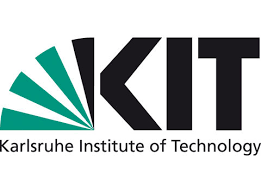Karlsruhe Institute of Technology: Material recycling- new batteries are made from old ones
The Karlsruhe Institute of Technology (KIT) is significantly involved in a new battery recycling project: In “LiBinfinity”, partners from research and industry are developing a holistic concept for recycling the materials from lithium-ion batteries. For this purpose, a mechanical-hydrometallurgical process without energy-intensive process steps is transferred from the laboratory to a scale relevant for industry. KIT tests the recyclates for their suitability for manufacturing new batteries. The Federal Ministry of Economics and Climate Protection (BMWK) is funding LiBinfinity with almost 17 million euros, of which KIT will receive around 1.2 million euros.
The sustainability of electromobility depends to a large extent on the batteries. These contain important raw materials such as lithium, cobalt, nickel and manganese. More than 90 percent of the materials used in lithium-ion batteries can be recycled. But the LiBinfinity project that has now started goes far beyond that and aims for a holistic recycling concept for lithium-ion batteries (LiB). “Especially in the electrification of trucks, the batteries require so much material that the use of recyclates is not sufficient for other applications,” says Professor Helmut Ehrenberg, head of the Institute for Applied Materials – Energy Storage Systems (IAM-ESS) at KIT. “Rather, a closed circuit is required for the batteries themselves. That means
In LiBinfinity, partners from research and industry are developing an approach that ranges from logistics concepts to the reintegration of recyclates into the life cycle of the battery. They are developing a mechanical-hydrometallurgical process that does not require any energy-intensive process steps and enables higher recycling rates: materials that cannot be separated mechanically are broken down using water and chemicals at relatively low temperatures.
Cathode materials have to meet high requirements
In LiBinfinity, KIT takes on the task of testing the recyclates, i.e. the recovered materials, for their suitability as starting materials for the production of new batteries. “This validation is essential because materials for batteries have to meet high requirements,” explains Dr. Joachim Binder, head of the research group Synthesis and Ceramic Powder Technology at the IAM-ESS. “This applies above all to cathode materials, which play a major role in determining the efficiency, reliability, service life, and costs of the batteries.” The following work is being carried out for LiBinfinity at KIT: Incoming inspection of the recyclates, synthesis of new cathode materials, electrode production, production of large-format lithium-ion battery cells in industrial quality , cell testing and evaluation of the battery cells.
A holistic recycling concept for battery materials not only improves the sustainability of electromobility from an ecological, economic and social perspective, but also reduces Europe’s dependency on raw materials.
About LiBinfinity
For the LiBinfinity project, a consortium has come together around Licular GmbH, a 100 percent subsidiary of Mercedes-Benz AG. In addition to the KIT, project partners are Mercedes-Benz AG, Daimler Truck AG, Primobius GmbH, SMS group GmbH, the Technical University of Clausthal and the Technical University of Berlin. A recycling pilot plant with an annual capacity of 2,500 tons is being built at the Mercedes-Benz site in Kuppenheim. The Federal Ministry of Economics and Climate Protection (BMWK) is funding LiBinfinity in the “Battery Ecosystem” funding measure with almost 17 million euros. Of this, the KIT receives about 1.2 million euros. The LiBinfinity project is intended to contribute significantly to
As “The Research University in the Helmholtz Association”, KIT creates and imparts knowledge for society and the environment. The aim is to make significant contributions to global challenges in the fields of energy, mobility and information. Around 9,800 employees work together on a broad disciplinary basis in natural sciences, engineering, economics, humanities and social sciences. KIT prepares its 22,300 students for responsible tasks in society, business, and science through research-oriented university studies. The innovation activity at KIT bridges the gap between knowledge and application for social benefit, economic prosperity and the preservation of our natural foundations of life.

